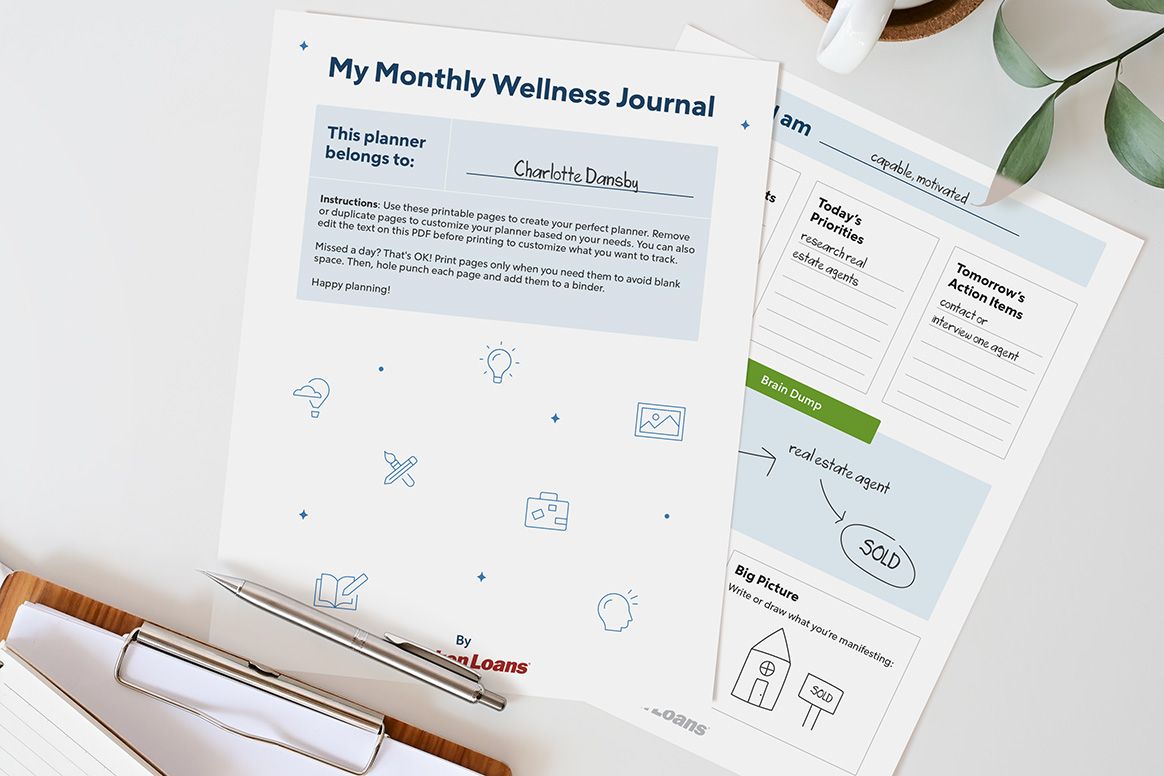Planning can be tricky to navigate no matter what your situation is – but especially for people with ADHD. Despite previously receiving or not receiving guidance in other areas of life, planning is one of the many processes that continue to overwhelm adults with ADHD. Luckily, there are ways to guide you through the process.
Adults with ADHD may be familiar with guided assistance during their formative and educational years. Allowing yourself to focus on the future instead of the present can be difficult when your mind scatters easily. Luckily there are tools and resources available to help.
1. Clear your space of distractions
Before opening your planner or attempting to focus on today’s daily tasks one should prioritize doing so in a distraction-free space. Adults with ADHD can be easily distracted by their surroundings making it difficult to complete a task. Therefore, taking 10 minutes to clear off your space will help minimize the chance of distraction. Common distractions may include non-related papers, dirty dishes, electronics and more.
A distraction-free environment will act as a sanctuary to promote focus. Some people enjoy lighting a candle and cuddling up underneath a blanket before planning their day. Designing a relaxing and comfortable setting to begin a, at times, stressful process can be beneficial.
2. Set short-term and long-term goals
Setting both short and long term goals is a great way to figure out where to start. Taking time to analyze where you are currently and where you want to end up will declutter your mind of the endless possibilities that can occur throughout your life.
A short-term goal could be cooking dinner every night, starting an organic garden, paying rent or incorporating meditation into your daily routine. Meanwhile, a long-term goal could consist of paying off a home loan, beginning a retirement fund, finding your dream job or reducing health concerns.
Analyzing your dreams and aspirations is key to beginning any planning process. After this step is complete you can begin pinpointing the smaller steps you need to take to achieve your goals.
3. Identify problem areas
After playing around with the possibilities of what your life can look like, i’s time to bring your mind back into reality. No matter what you’re planning it’s important to identify your problem areas. This process can be intimidating and nerve-wracking as it forces one to acknowledge their personal struggles.
Common problem areas for adults with ADHD may include situations involving routines, clutter and the need for high levels of attention.
Recognizing personal problems is an essential part of the planning process. If one doesn’t prioritize this step, it’ll be easier to fall back into old habits. While this step is not a direct step of the planning process it is quintessential for those who find themselves letting go of planned out short and long-term goals.
4. Reflect & remind
There are times throughout the year where you are overtaken by an intense desire to get yourself on track. Occasionally that desire may last long enough for you to take action. However, more times than not, that feeling begins to dissipate as you submerge yourself in daily affairs. A way to prevent that never-ending cycle is to remind yourself why.
● Why do I feel the need to complete this goal?
● How will achieving this task benefit me personally?
● What emotions can I imagine feeling after completing what I have planned?
Many see planning as a logical step, solely taken to improve your physical health, educational success and career. While those areas of life can be affected, your emotional and mental health is also affected by the presence of planning or lack thereof. For adults with ADHD, emotions can become overwhelming. If you take action to relax and calm your mind through planning your attitude and mental health will see the benefits.
5. Write it all down
Forgetfulness is a common reason behind failed task completion. Adults with ADHD may find themselves distracted and lost more than those without. After or during the planning process it is crucial to write down your goals, problem areas, reasons behind each task and your feelings surrounding each goal. Writing down information on a planner, whiteboard, calendar or journal are all ways to stay organized and on track.
A fun way to do this would be to create a visual aide. Visualization has been an effective way for both children and adults with ADHD to understand the topic or proposal in discussion. There is no right or wrong way to create your visual aide. However you feel your brain will best comprehend your goals, problem areas and more will do.
Plan Like a Pro With Our Free ADHD Planner
Create Write Now and Quicken Loans both believe in the power of planning, whether you’re working toward financial stability or an improved lifestyle. They want to provide those with ADHD the resources and tools needed to improve their daily and long-term habits.
The printable ADHD planner was designed to benefit those whose brains function differently than what is considered “normal.” The planner consists of a past accomplishment section to encourage self-compassion, a brain dump space to clear your mind, a space for visuals, a space to check in with your mental health and more. One of the unique aspects of this planner is the micro-priority list. This section of the planner was designed to encourage short and focused tasks to prevent overwhelm.
A recommended use for the planner would be to track your financial planning. Perhaps one of your goals is to buy a home. This process can be confusing and stressful. The brain dump and mental health check-in space will help you release any tension you feel toward this process. Meanwhile, the micro-priority list will allow you to organize the small steps you can take to understand the process, like learning lending terms and where to start.

No matter what your goals are or where you are in life the free ADHD planner can assist adults with this disorder toward becoming confident, calm and collected.
 Author bio:
Author bio:
Jessica Baker is a Content Marketing Manager over at Siege Media. You can learn more about Jessica HERE




Leave Comment